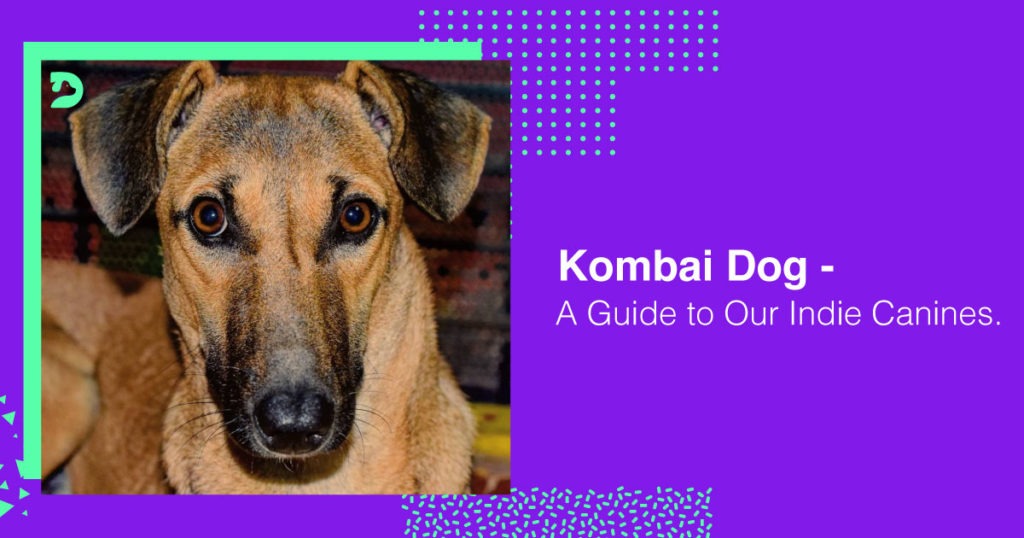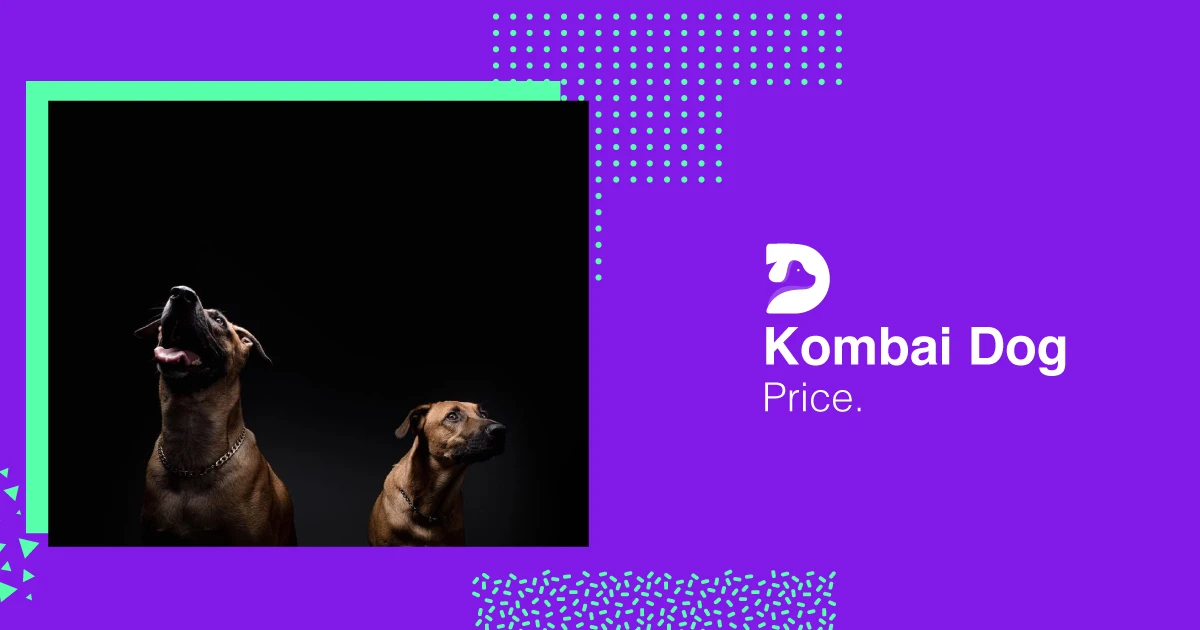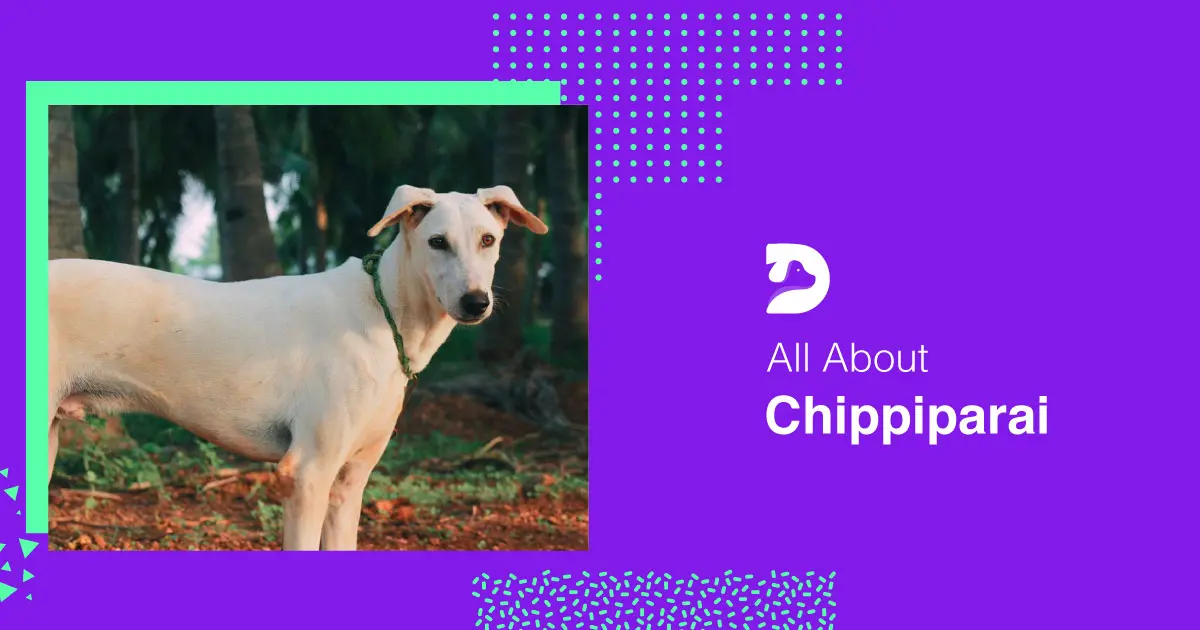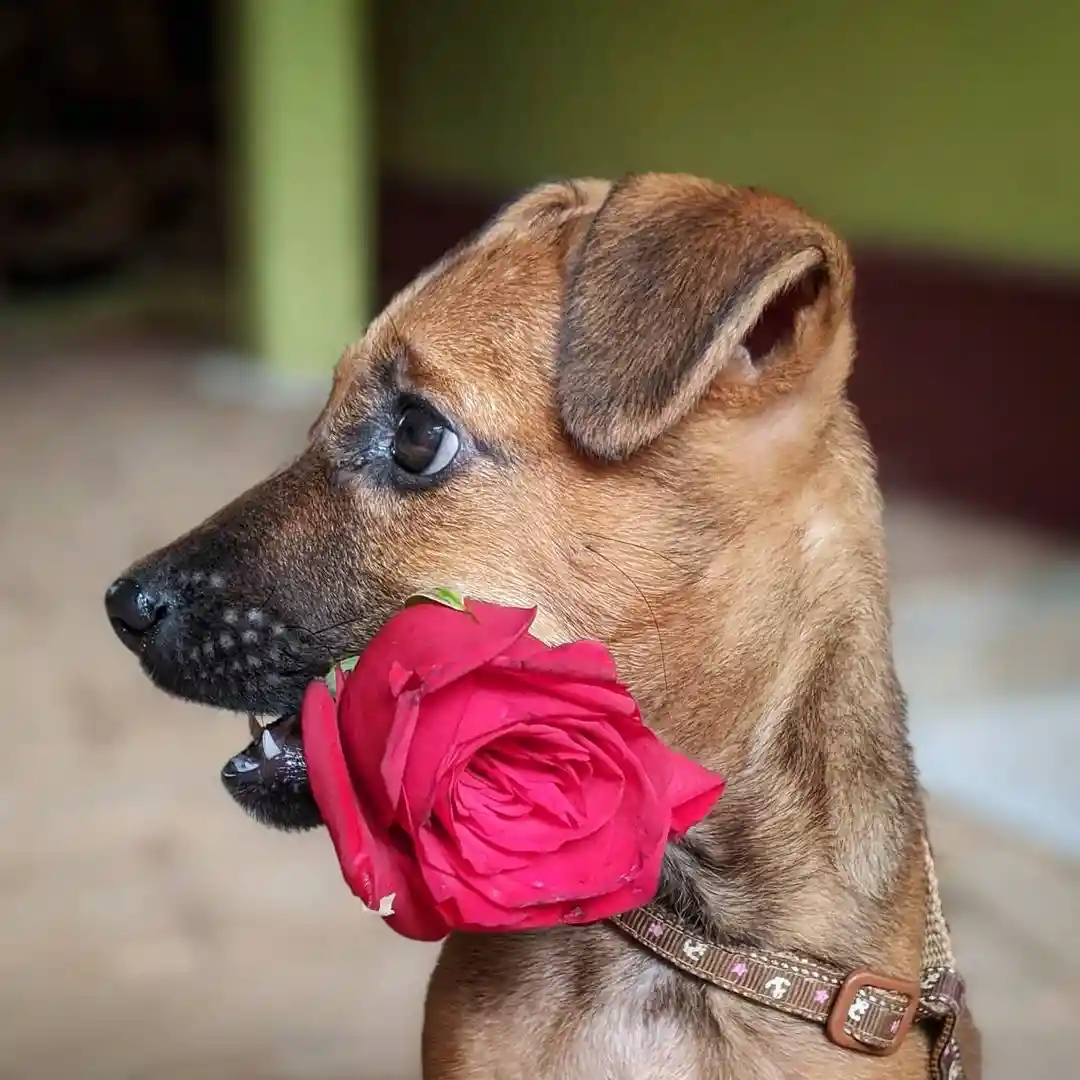
Indie breeds ( Kombai Dog ) are often ignored for dogs that are recognized by pedigree breeding organizations. Dogs like huskies, saint bernards, and others are brought to India, where the climate is highly unsuitable for them to thrive, thereby shortening their lifespans and subjecting them to a myriad of health problems, physical and psychological. The abandonment rates of such high-maintenance breeds have skyrocketed during the Coronavirus pandemic; their upkeep costs a lot, and they are not meant to be indoor dogs, resulting in traits their owners did not sign up for.
It is a sad sight to look at such dogs being used as status symbols, while we have stellar and highly capable indie breeds living on the streets. But did you know indie dogs have different breeds too? Strays are ill-treated and shooed away like pests, poisoned and culled cruelly, reducing their individual breed population to the critically endangered list.
To help raise awareness, we are curating this guide for you to understand indie dogs, which are as amazing as other breeds and deserve a fighting chance. This article is regarding the critically endangered Kombai dog, native to Tamil Nadu in Southern India.
Insight into the Kombai breed: Origin and History
The Kombai are an Indian hound named after their place of origin, a village called Kombai, located near Cumbam and Uthampalayam. As one of the most ancient dog breeds, their trail and presence has dwindled to the extent of them being critically endangered.
The Kombai were dogs meant for hunting and guarding since the olden days, and have proven their position by the heels of their owners dating as far as the 9th century. However, there are very few records of this and hence the Kombai can be traced back to the 15th Century using sculptures and scripts.
In historical times, Kombai were war dogs. If you visit the South of India, you will find temples decorated with sculptures of these beautiful beasts, often guarding their kings. In fact, there exists a hero stone dating back to 580 to 630 CE where a man and his dog named Kovvian have been inscribed about. The dog is shown to have erect ears and an open jaw ready to attack, which bears an uncanny resemblance to the Kombai breed.
Alternative Names of Kombai Dogs
- Combai
- Pulicharal Kombai (a brindle color variant)
- Porru Kombai
- Indian bore dog
- Bore hound
Physical Characteristics
Since the traits of a true Kombai have been diluted over time, there are vague markers of the breed. Our guide will act as a standard for you to identify these dogs better.
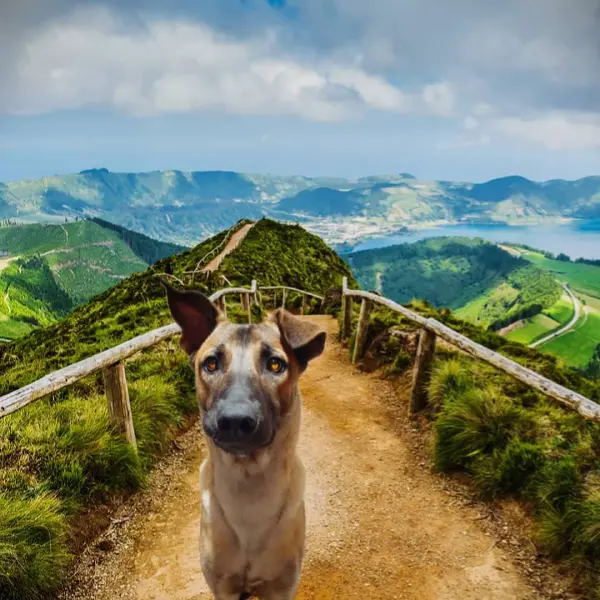
🐶 Colour and Coat – The Kombai come in various shades of “red”, which essentially means brown. They can have spots, patches or patterns in rare varieties too. However, a true Kombai is a solid coloured dog with a black muzzle. Their fur is a single-dense-coat.
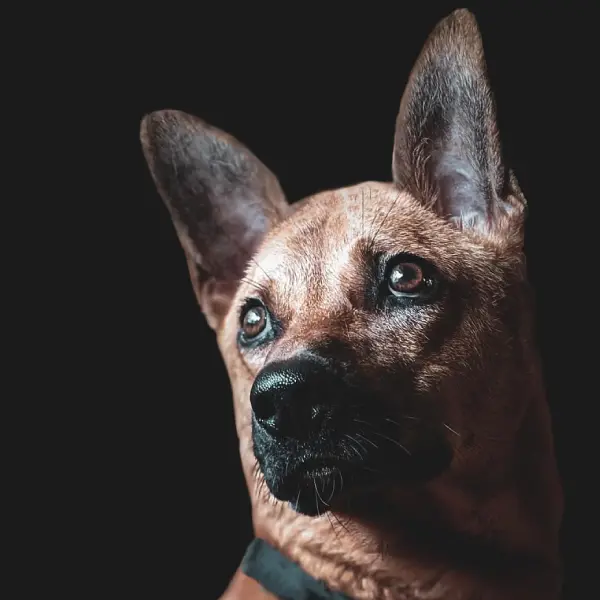
🐶 Head shape – The head of a Kombai is large and broad in shape, almost like a blunt wedge. It is proportional with the body and is meant for mobility as well as strength. While running, the head bends low for extra speed. Their muzzle is often a gradient darker than the rest of the fur coat, sometimes black.
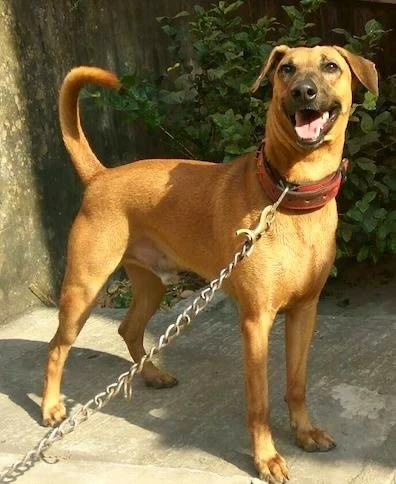
🐶 Body and legs – The Kombai is a medium-sized dog with an athletic yet muscular body. Their expression has an alertness, pointed ears or not. The tails of Kombai can be of different types, from straight, to curved or curled. They are guard dogs and it shows in their stance of gait. The legs are meant for speed and agility like a Rhodesian ridgeback from South Africa. They are known for their striking appearance and make very handsome dogs.
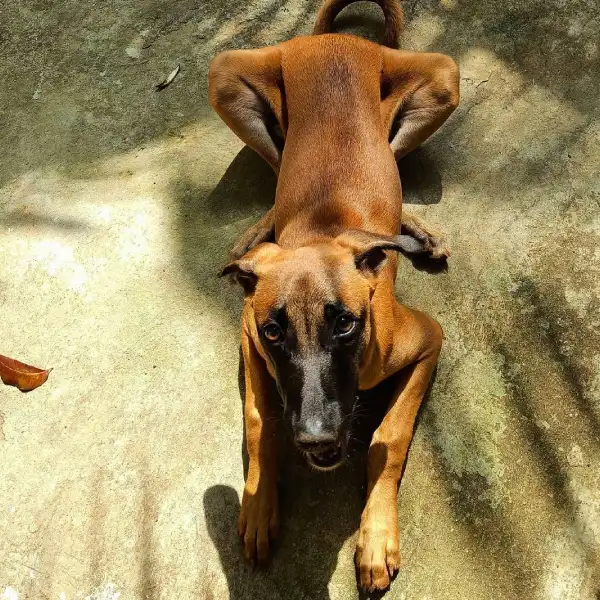
🐶 Ideal height and weight – The ideal male and female Kombai both are 40-50 cm in height, with a very minor difference. The weight of a male and female ranges between 25-30 Kg and 20-25 Kg respectively.
Lineage: Do they descend from wild dogs?
There is a theory that the Kombai descended from Shen-Naai, the red wild dog of Tamil Nadu. They also resemble the Rhodesian Ridgebacks of South Africa. However, these claims are not proven.
The other wild dogs, Dhole seem to be the common ancestor between Kombai and Pariah breed, sharing similar traits. However, even this is yet to be scientifically proven.
Why are the Kombai Critically Endangered?
The Kombai breed’s bloodline has been diluted over centuries. Introduction of non-native breeds and neglect towards indie dogs are two of the biggest reasons why true Kombai are critically endangered.
Varieties of Kombai Dogs
Porr Kombai: The Porr Kombai is a piebald variant, the only one with patches on two colour bases. Their name translates to “War Kombai”, aptly describing their historical role.
Pulichral Kombai: The Pulichral Kombai is the rarest of them all, with a brindle coat that looks like tiger stripes. Their name also translates to “tiger raindrops”, referring to their coat pattern.
Mandai or Ramanathapuram Kombai: The Mandai is the only Kombai that is of a grey coat with other colour variants and mixes. Native to Ramananthapuram, these dogs have very few records and are almost impossible to find today. As ancient war dogs, they are slightly larger than the normal Kombai.
Temperament
The Kombai are dignified yet of a nervous temperament, hence they need to be trained by someone who is confident, firm and gentle at the same time. Using harsh training does not work on them, so reward based treats are the best route. They can display aggression while training on hunting mode and towards unseemly strangers, but this is protectiveness and territorial rather than aggressive. They can be gentle with children and bonded members, so make sure to socialize them early.
Kombai are working dogs who need to be trained for agility, speed and bite work as they will make very successful security dogs. They are loyal to their owner and the family while displaying alertness and integrity when they guard the house or property. Kombai can be playful and make great companions for strong people who love a good workout with their pet to bond.
Kombai Bite Type and Jaw Strength
Undershot Jaw, Reverse Scissors Bite. In an undershot type of dog mouth, the lower jaw of the canine is positioned perceptibly longer than the upper jaw. A Reverse Scissors Bite is caused due to an undershot mouth, where there is no gap between the teeth of the upper and lower jaws.The Kombai have a very firm bite strength and grip, like a pitbull. So much so, their bite can break a bone. It is essential to practice bitework if you are training your Kombai to be a guard dog. Also, socialising your dog with treats as incentive to not bite home residents and bypassers unless in defence will help them control their instinct.
The Purpose of Kombai Dogs
Historically, they were used as war dogs, participating alongside their masters. They were also guards and protectors of palaces and fortresses. They were also owned by zamindars for protection, as per Desmond Morris’ book, Dogs: The Ultimate Dictionary of 1,000 Breeds. Today, this medium-sized canine is found guarding farms, properties or simply a loyal house companion. They also would fit well into the police forces.
Do Kombai make Good Family Dogs?
Kombai make ideal house pets because of their inherent characteristics of being loyal and protective around people they feel safe with. They have a high prey instinct, but are affectionate with family members they bond with.
Kombai along with all indie breeds are safe around children and family if they are unprovoked. It is advised to socialise your dogs regularly with people and other dogs to help with their temperament. While introducing new children and babies to your Kombai, give them time and be patient. Teach children how to be gentle with your dog and not pull their ears or tail, as they may not understand how to treat them.
Above all, never leave your children unsupervised around your Kombai until you’re confident that they understand that a pet is not a toy to be pushed, bitten or treated roughly. Kombai are extremely loyal guard dogs; even with brute strength, they can be gentle towards children. Animals do not react without threats and only to defend or protect, so make sure you have the environment under control.
How Easily are Kombai Dog Trained?
The Kombai are highly intelligent dogs and have a strong sense of intuition. They possess strong jaws for bitework training, one of the most challenging types of dog training. Since they are working or hunting dogs, the handler needs to give them a good workout to release all the nervous energy to help them stay happy and healthy.Their sense of purpose comes from their work, which is guarding or protecting. Training that involves, sniffing and detecting, chasing and catching as well as obedience training with the help of treats will have you a pack of happy Kombai.
They are excellent guard dogs, can be recruited in the police and defence services. As they are highly disciplined, training comes as second nature t o the Kombai. Eager to follow instructions and appease their owner, the Kombai are quick learners.
Grooming and Nutrition of Kombai Dog
Since the Kombai are indigenious short haired dogs, they are low maintenance and can be groomed at home with regular medicated baths. Their coat does not shed much because it is dense and a single coat.They also thrive on home cooked food such as rice and chicken or other meat along with bones for promoting dental health as well as jaw strength. Doting owners often treat their Kombai, but ensuring they don’t consume saturated fats, salt and sugar is essential as these are not healthy for animals.
Is Kombai the ideal dog breed for you?
If you’re looking for a dog to guard your farms, home and property, a Kombai is a great choice. They also make loyal family dogs. However, we’d advise against bringing home a Kombai if you have no prior experience in owning large dog breeds.
Breeding Kombai Dogs
They attain sexual maturity between 6-10 months. Breeding true Kombai brings beautiful and healthy pups in a litter of 4-8 with unadulterated traits, but it is rare to find them today. Inter-breeding has mixed the bloodlines or diluted the characteristics, which is why they are critically endangered today.
Kombai puppies
Kombai puppies begin to show their characteristics in their initial months. While being very playful and highly energetic, their “never give up” and unyielding stubbornness shows up early in life. It is important to teach them not to bite by reward-based obedience training.
Know Your Kombai: Facts and Tips You Need To Know!
- They are one of the most ancient Indian dog breeds, being our loyal companions since as far as the 9th-15th century.
- Kombai make loving house pets.
- These dogs are highly intelligent and display problem solving abilities such as tracking prey.
- They can make an ideal recruit in the defence and police forces.
- Being high drive working dogs, a Kombai’s self esteem is attached to their work. This means they need heavy exercise.
- To help your Kombai feel confident and secure, train them with rewards for good behaviour and seeking treats with positive affirmations.
- They are extremely regal and dignified, which means they can feel offended or hurt if spoken to/treated badly.
- If you earn the trust of a Kombai, they will guard you and your loved ones with their lives.
Kombai FAQ
Are Kombai dogs good as guard dogs?
Kombai make excellent guard dogs due to their temperament, territorial nature, hunting instinct and chasing speed. They can be intimidating to strangers as they do not take kindly to intruders and will defend their territory.
What is the speed of a Kombai dog?
The accurate speed of a Kombai dog has not officially been established. However, considering that they are hunting hounds, they possess extraordinary stamina and can reach high speeds to catch their target.
What is the bite type of Kombai dogs?
Kombai dogs have an undershot or a reverse scissor bite.
How do I identify a Kombai dog?
You can identify a Kombai with the help of the physical features mentioned in our article.
Can I feed Pedigree to a local breed dog (Kombai)?
We would advise against feeding an indigenous dog breed Pedigree because processed food puts your dog in danger of becoming obese. Kombai can be fed home cooked food such as a mix of chicken and rice with broth, or any meat combination with an ideal ratio of bones and cartilage to chew on.
What is so special about the indigenous dog breed Kombai of India?
Kombai are native only to make excellent guard dogs due to their high prey and hunting instincts. They can be very adept trackers and hunters, making ideal picks for the police and security forces. They can also be helpful to protect plantations, livestock or large properties due to their alertness, bravery and drive.
Where to buy original Kombai puppies
We’d suggest that you adopt a Kombai puppy, as the locality of Kombai is filled with them. You can contact an NGO who will be able to help you. However, if you want a true Kombai, you can visit breeder farms in the Theni district who are attempting to revive the Kombai population.
Are Kombai dogs high maintenance?
No, they are not. Kombai dogs are short coat indie breeds that do not need much looking after, save regular feeding, exercise, and bonding. They do not need a professional for grooming as you could bathe and brush them yourself! They eat home prepared meals and don’t need expensive treats, unless you want to pamper them.
Do Kombai dogs need frequent vet visits?
The Kombai is a low maintenance breed, just like all indie dogs. Since they are acclimatized to our temperature, terrain, humidity levels, and all other factors that could easily get foreign breeds sick easily, Kombai are very less likely to fall sick. They don’t need frequent vet visits unless your Kombai seems to be in discomfort or pain. However, if you notice anything unusual such as the following, take your pet to the vet at the earliest:
1. Discharges
2. Fever
3. Vomiting or bloating
4. Diarrhoea
5. Lack of stool
6. Odd colored urine
7. Excessive drooling and panting for prolonged periods
8. Delirium or over-aggression
9. Depression-like behaviour showing prolonged disinterest in eating or playing
10. Unusual whining whining sounds
11. Wounds or a limp
12. Lumps under skin or bald patches
13. Any apparent inflammation
14. Ear infection
Do I need to vaccinate my Kombai dog?
Like all house pets and dogs, it is essential to have your Kombai dogs vaccinated when you adopt them. This will ensure that they are safe against diseases such as parvo and rabies, while protecting yourselves and the people interacting with your dog, too. Make sure that you take your Kombai puppy or dog to a vet whenever you adopt them first to check for worms, ticks or any other underlying conditions. Don’t miss out on their vaccination shots!
How do I know if my dog is a Kombai?
If you have adopted a dog from a shelter, there is no sure way to determine their breed as true Kombai are rare. However, a lot can be said from where you adopted them from. True Kombai have gold eyes, a darker muzzle, and ridge running down their spine in the opposite direction, just like a Rhodesian Ridgeback. You can also check out the characteristics and physical traits referring to their physique to match features. It is common to find mixed traits at times due to interbreeding Kombai, so your dog may also possess certain degrees of Kombai breed genes.
Conclusion
As seen in the article above, the Kombai dogs are wonderful with great immunity, resilience and physical attributes. This makes them one of the best breeds to adopt, since they are protective, loyal, and can be amazing guard dogs. If you have a farm with livestock or a plantation, these agile and intelligent dogs would make an amazing addition to protect your property. Since they have all the space to run around, large properties are one of the best places as their potential home.
Kombai are also appropriate for bungalows and flats as they make great family dogs. Devoted to their owners and protective of children, their temperament can be gentle when unprovoked. If they are treated with respect and trained well, these gentle beasts can be very affectionate. As the saying goes, a dog embodies the personality of their owner. We have nothing but praise for this indie breed, which is why we recommend you to adopt them.
They need our help to be brought back from their critically endangered status, which can be accomplished by community care towards the ones living on the streets. giving loving homes to indigenous dogs can be far more rewarding than owning a pedigree as a status symbol! If you like our guide to Kombai dogs, please visit our page for information on more such breeds. Adopt a dog, save a life!
